What You Need to Know About the War in Ukraine: Displacement, Hunger and Black Sea Ports
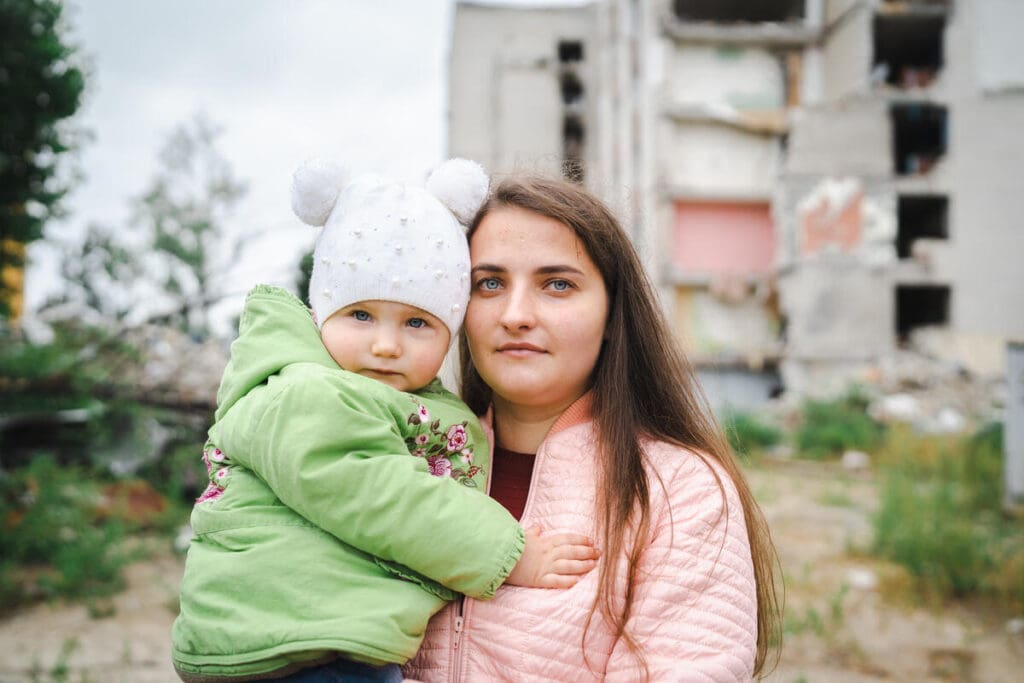
Over the last ten months, the war in Ukraine and its global impacts have constantly evolved. Frontlines have shifted. Ports closed then reopened. The number of Ukrainians displaced from their homes and facing hunger has fluctuated, all while global food and fuel prices climbed to record highs only to stabilize in shortly after.
Amidst an ever-changing situation, we’re here to give deeper insight into our response to one of the worst humanitarian crises in the world today.
Here’s What You Need to Know
- The war has displaced over 14 million Ukrainians from their homes and exacerbated hunger across the globe.
- The U.N. World Food Programme is using a mix of food and cash assistance to support Ukrainians impacted by the war.
- U.N. World Food Programme-chartered vessels have departed Ukraine’s Black Sea ports carrying humanitarian shipments of grain, thanks to an agreement signed by Ukraine, Russia and Türkiye.
The War Triggered Massive Displacement and Rising Hunger
The war in Ukraine has caused one of the fastest forced population movements in Europe since World War II. 6.5 million Ukrainians are internally displaced from their homes, the majority of whom packed whatever they could carry and fled to the western regions of the country where the least amount of fighting has occurred. Another 8 million Ukrainians have fled beyond their country’s borders to find refuge in neighboring places like Moldova, Hungary and Romania.
Despite the violence and devastation, 7 million Ukrainians have crossed back into their country since February 2022. In the east and south, where most of the conflict has occurred, families are caught in the crossfire of the conflict. They face diminishing access to clean water, food and electricity.
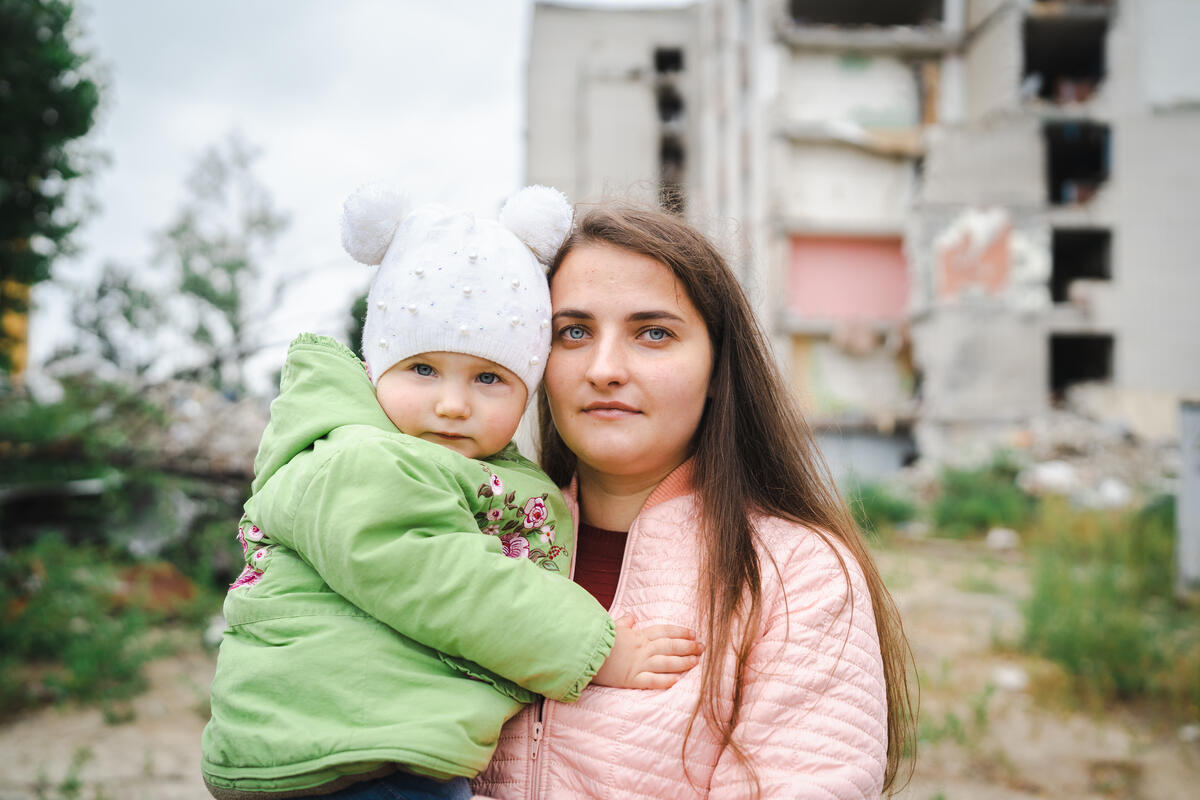
Millions of Ukrainians who fled their homes are preparing for long-term internal displacement in the west.
Since the beginning of the war, hunger has haunted Ukrainians. Today, an estimated one in three households do not have enough food. In the eastern parts of the country, this figure rises to one in two households: Nearly half of the people surveyed in regions including Donetsk, Kharkiv, and Zaporizhzhia said they were reducing meal sizes, skipping meals to feed their children or borrowing food.
How WFP Is Helping Ukrainians
At the request of Ukraine’s government, the U.N. World Food Programme launched an emergency operation on February 28 to assist Ukrainians impacted by the war. Our teams were immediately on the ground delivering ready-to-eat meals and bread.
To date, the U.N. World Food Programme has distributed over 300 million pounds of food to the people of Ukraine. Our food distributions are concentrated in the eastern and southern parts of the country where fighting and supply chain disruptions are hurting people’s access to food.
Wherever there is access to banks and markets are functioning, we prioritize cash-based assistance because it empowers communities to choose the foods they need while boosting local economies. Since the beginning of the war, we have distributed over $400 million dollars to conflict-affected people.
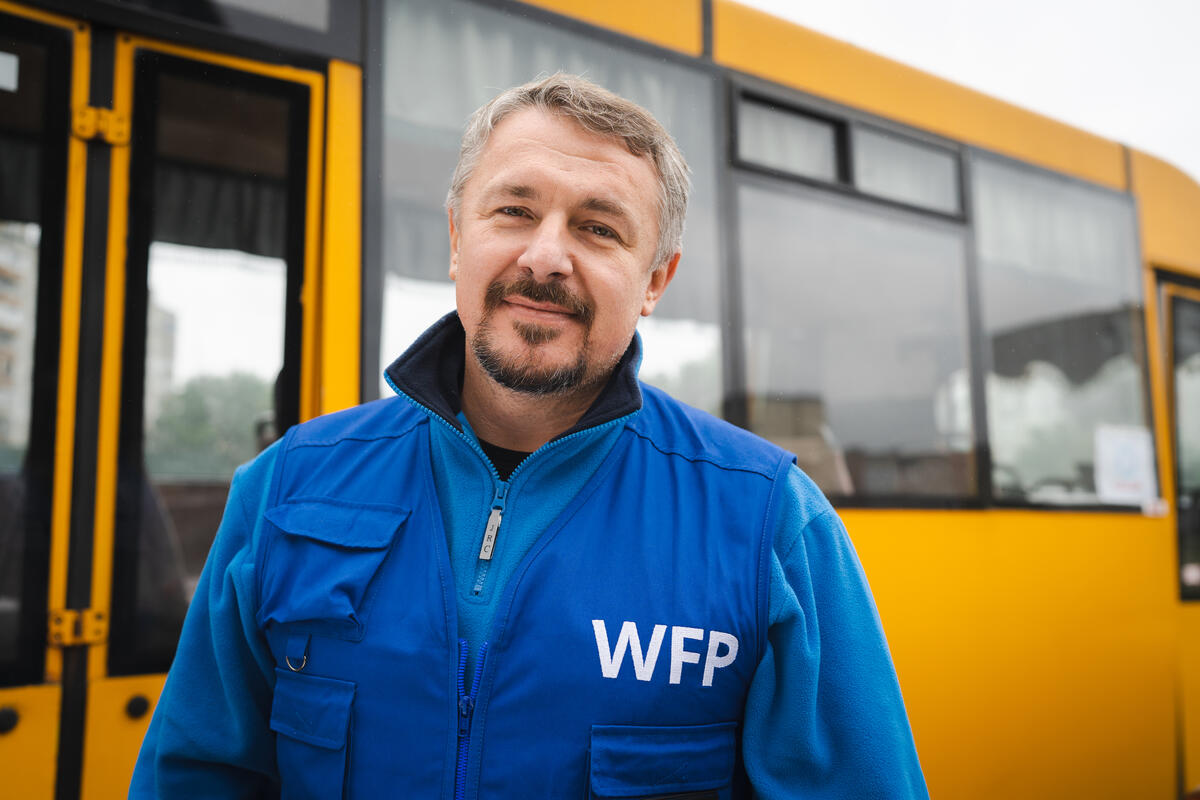
WFP is committed to supporting people in Ukraine on both sides of the contact line, always guided by the humanitarian principles of neutrality, impartiality, humanity and independence.
The U.N. World Food Programme is also assisting Ukrainians who have taken refuge in neighboring countries like Moldova. Over 13,000 Moldovan families have receive U.N. World Food Programme cash transfers to cover the added expenses of hosting refugees.
Despite escalations of the violence, the U.N. World Food Programme supports nearly 3 million people every month with food or cash.
The War’s Ripple Effects: Food and Fuel Price Spikes
In late February, the U.N. World Food Programme sounded the alarm on the war’s possible impacts on global food security. Over the last ten months, those ripple effects came to pass as the war drove up the prices of food, fuel and fertilizer (the triple F’s) and compounded the already devastating impacts of conflict, climate shocks, COVID-19 and rising costs (the four C’s) have had on the world’s hungriest people.
Global food and fuel markets were plunged into turmoil as shipments out of Ukraine came to a halt. These supply chain disruptions pushed already high food prices to record heights. The costs of basic foods – notably wheat and corn – skyrocketed, putting millions of people at risk of hunger. Only in the past few months have global food prices stabilized, though they remain significantly higher year over year.
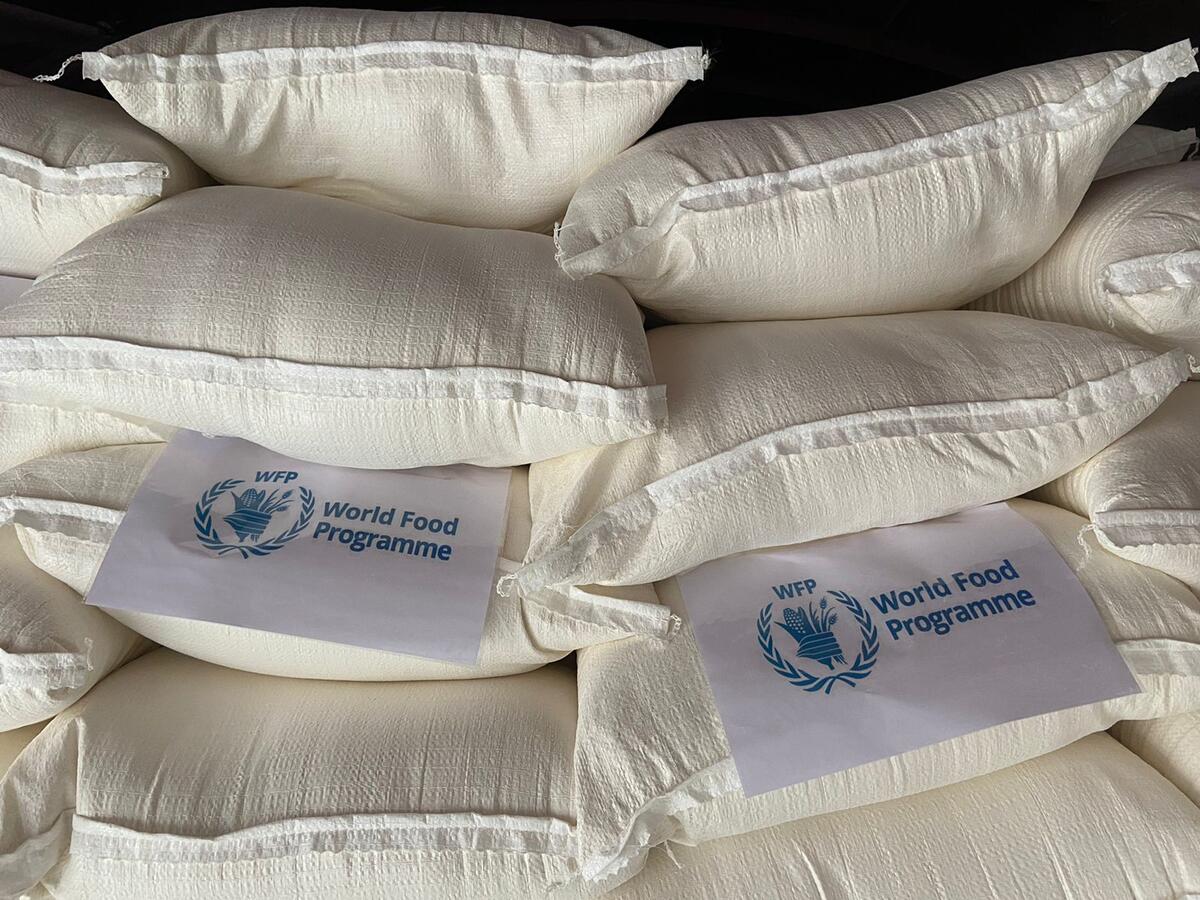
The cost of foods the U.N. World Food Programme distributes, including wheat, peas and specialized nutritious foods, has skyrocketed.
The U.N. World Food Programme has not been immune to these ripple effects: The agency’s monthly operating costs are $28.3 million higher per month compared to the start of 2022, effectively reducing our ability to serve those in need.
Black Sea Grain Initiative: WFP-Chartered Vessels Are on the Move
On July 22, representatives from Ukraine, Russia and Türkiye signed an agreement to reopen Ukraine’s Black Sea ports to food and fertilizer exports. The U.N. World Food Programme worked with Ukraine’s government and other partners to advocate for this reopening of the ports and is now facilitating the export of grain. Since the agreement was signed, 10 U.N. World Food Programme-chartered vessels have departed Ukraine. The first shipment of humanitarian food assistance under the Black Sea Grain Initiative arrived at our main warehouse in Ethiopia on September 7.
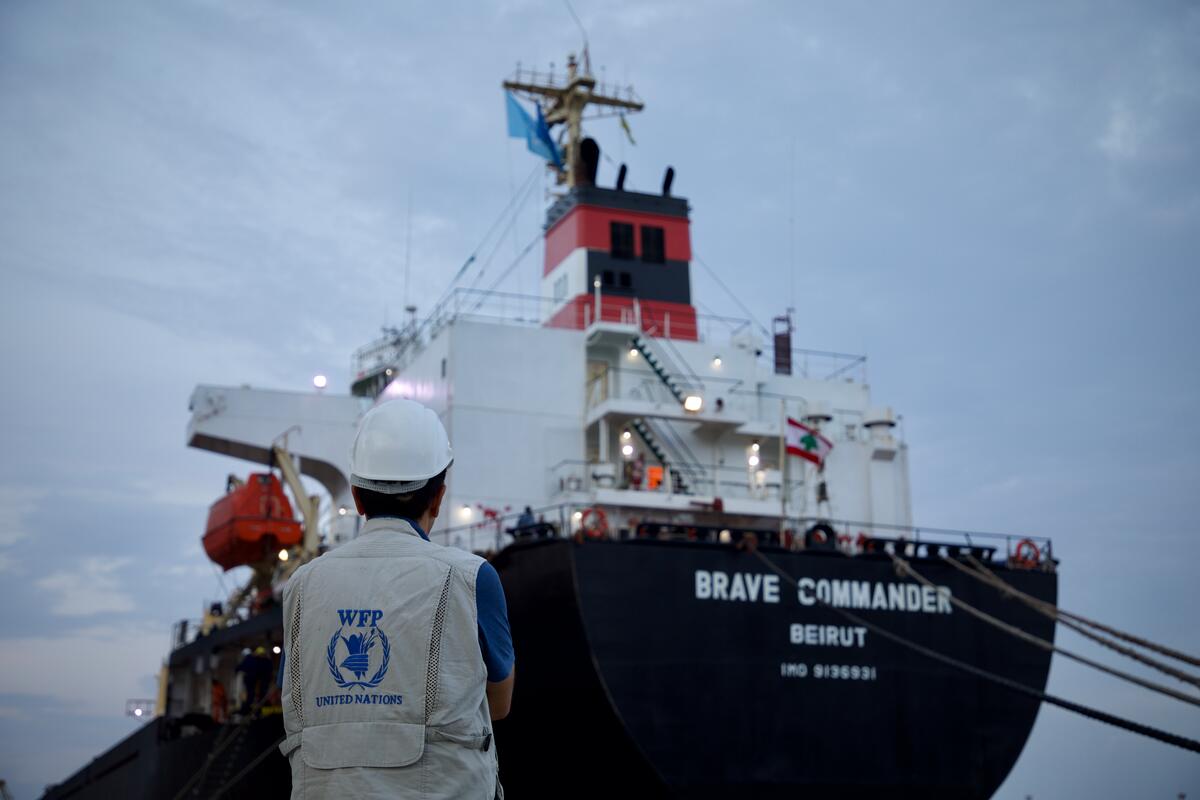
The WFP-chartered vessel Brave Commander was the first humanitarian cargo vessel to arrive in Ukraine’s Black Sea Ports since the war began.
While the movement of shipments out of Ukraine is a positive step towards alleviating the global food crisis, it will still take months for supply chains to recover from the disruptions caused by the war.
We welcome the agreement by all parties to continue the initiative past November 19. There can be no solution to the global food crisis without ensuring full global access to Ukrainian food and Russian food and fertilizer.
How You Can Help
The war in Ukraine is not taking place in a vacuum. It unleashed a wave of collateral hunger across the globe. Today, a historic 349 million people face the most extreme levels of hunger.
With no end in sight to the war and the world hungrier than ever, the needs have never been greater. Millions will starve if we cannot reach them in time.
We need your help to meet this seismic hunger crisis. Donate now and visit our Action Center to learn how you can get more involved in our work.




